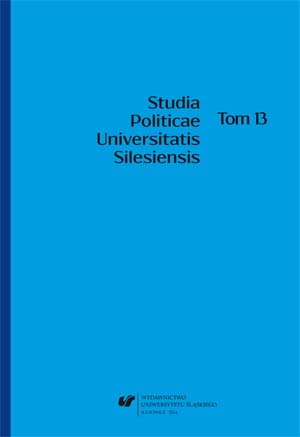Standardization of modern democracy
Standardization of modern democracy
Author(s): Jan IwanekSubject(s): Politics / Political Sciences
Published by: Wydawnictwo Uniwersytetu Śląskiego
Keywords: democracy; transnational democracy; standards of democracy
Summary/Abstract: Democracy is a timeless, abstract, political system that may occur in virtually any cultural space. The civilizational context, being external to particular national democracies, seems of the utmost importance in the process of forming the system in individual states. As a result, the sphere of shared, similar features of democracy is created. By becoming gradually accepted and embedded in societies it resembles products of culture and becomes a standard of modern democracy. As a theoretical tool to describe the external environment of national democracies, the author proposes the notion of transnational democracy, by which he means a precisely‑‑ defined collection of standards and constitutional law patterns, as well as processes and political actions of state, judicial and social institutions, and also individual behaviours, that were formed and fixed in a particular cultural space and over a defined period of time. Additionally, it relates to accepted, or at least tolerated, political ideas present in democratic countries of a particular cultural circle. The author points to the possible spheres of comparing national democracies. If such studies are conducted, it will be possible to define common and perpetuated systemic solutions of contemporary democracy, and subsequently, to gauge the degree of democracy in a particular state.
Journal: Studia Politicae Universitatis Silesiensis
- Issue Year: 2014
- Issue No: 13
- Page Range: 13-24
- Page Count: 12

